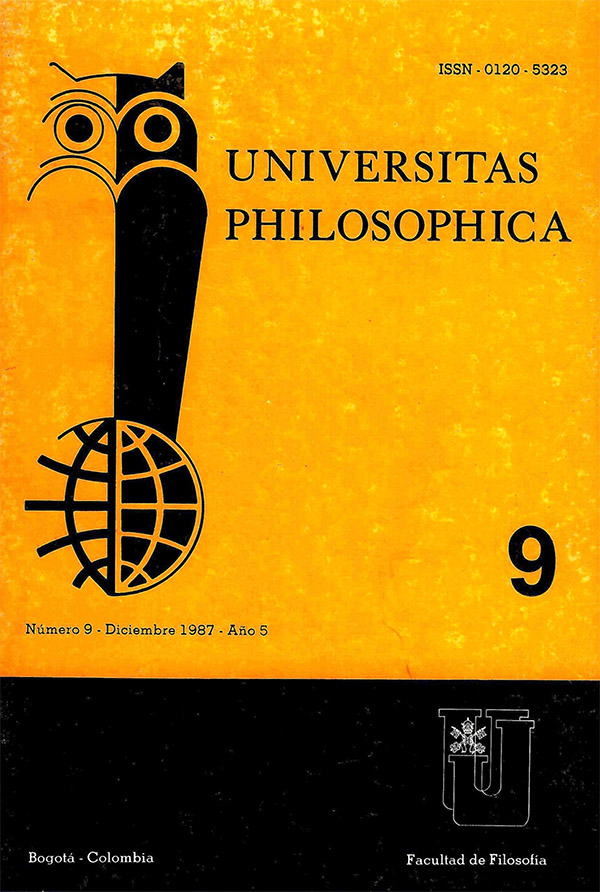Abstract
El presente texto —leído por su autor como lección inaugural del segundo semestre de 1987 en nuestra Facultad— desarrolla el problema del sentido que aún tiene la filosofía en nuestras actuales circunstancias de indigencia.
Lo hace, dentro de una clara inspiración heideggeriana, examinando el temple de ánimo dentro del cual el filósofo da comienzo a su tarea para, desde allí, abordar el asunto más fundamental: el del papel que corresponde al filósofo en una situación como la nuestra, de indigencia, de pobreza absoluta.
Concluye el artículo haciendo mención de dos de los dispositivos más importantes por medio de los cuales el mundo contemporáneo adormece nuestra conciencia de que vivimos en el olvido del ser mismoy del ser-propio-de-la-existencia-humana: la ensoñación de un progreso creciente y los medios de comunicación centrados en laimagen concreta.
This journal is registered under a Creative Commons Attribution 4.0 International Public License. Thus, this work may be reproduced, distributed, and publicly shared in digital format, as long as the names of the authors and Pontificia Universidad Javeriana are acknowledged. Others are allowed to quote, adapt, transform, auto-archive, republish, and create based on this material, for any purpose (even commercial ones), provided the authorship is duly acknowledged, a link to the original work is provided, and it is specified if changes have been made. Pontificia Universidad Javeriana does not hold the rights of published works and the authors are solely responsible for the contents of their works; they keep the moral, intellectual, privacy, and publicity rights.
Approving the intervention of the work (review, copy-editing, translation, layout) and the following outreach, are granted through an use license and not through an assignment of rights. This means the journal and Pontificia Universidad Javeriana cannot be held responsible for any ethical malpractice by the authors. As a consequence of the protection granted by the use license, the journal is not required to publish recantations or modify information already published, unless the errata stems from the editorial management process. Publishing contents in this journal does not generate royalties for contributors.


